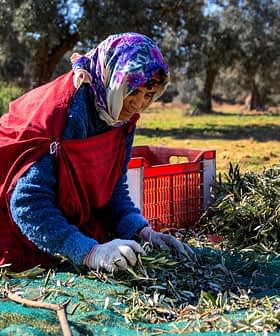Arrest of CHO Group CEO Shocks Tunisian Olive Oil Sector

Tunisia’s largest olive oil exporter said it was keeping busy with a bumper crop even while uncertainty around its chief executive continued.
Abdelaziz Makhloufi, the chief executive of CHO Group, was arrested on October 30 following an ongoing investigation into a publically owned farm in Tunisia’s Sfax governorate.
Another 15 people, including a former minister of agriculture, have been detained by the authorities.
“To clarify, Mr. Makhloufi is being questioned as part of a wide investigation into the management of a public agriculture domain,” Wajih Rekik, CHO America’s chief executive, told Olive Oil Times.
See Also:Major Olive Oil Producer Loses $3M in Spate of TheftsThe arrest followed a surprise visit by Tunisian President Kaïs Saïed to the Henchir Chaâl farm, where he condemned corrupt practices, including the sale of agricultural machinery, such as tractors, at undervalued prices.
Besides being home to 360,000 olive trees, the farm is also active in other agricultural activities.
The whole area covers more than 5,000 hectares. The farm employs hundreds of permanent and seasonal workers.
In a statement released to local media, CHO Group lawyers noted that Henchir Chaâl is the source of less than one percent of the group’s total olive purchases.
The company also specified that CHO had never bought tractors from the farm.
CHO Group said it remains committed to continuing its operations despite the disturbance.
“CHO America and all of CHO’s international operations continue their operation and growth with all products and brands,” Rekik said. “We want to reassure all partners that we are harvesting, crushing, bottling, and servicing our customers worldwide with the same passion and dedication.”
”Our whole group, farmers, millers, quality assurance teams, logistics and international operations around the world, have great admiration for Mr. Makhloufi, who instilled in our DNA a culture of passion and hard work,” he added. “The reaction [to the arrest] was what you would expect from CHO: Millers and quality assurance teams are working weekends and very long hours these days as we started the early harvest of a bumper crop.”
The investigation sent shockwaves through Tunisia’s olive oil sector, which significantly contributes to the country’s economy.
See Also:Technology Drives the Ambitions of Tunisia’s Largest Olive Oil ProducerAccording to the National Observatory on Agriculture (Onagri), in the last ten months of the 2023/24 crop year, export revenues rose to approximately $1.5 (€1.44) billion, a 61.7 percent increase compared to the same period of the previous season.
The rise was due to olive oil’s steep price increases in the last two years and to a 3.2 percent growth in total exports.
These values accounted for seven percent of the overall Tunisia export revenues. CHO Group, widely known for its Terra Delyssa brand, exports to dozens of countries.
The Tunisian Minister of Agriculture Ezzedine Ben Cheikh forecasted a production of 340,000 metric tons of olive oil in the 2024/25 crop year.
According to the Ministry of Agriculture, Water Resources and Fisheries, Tunisia produced 220,000 tons in 2023/24.
“We are going through a great crop with the potential to reach 350,000 tons,” Rekik said. “The rain we enjoyed in the last few weeks is strengthening our plantations for the next crop as well, and it is relieving a big part of the anxiety we had around the hydric stress.”
“CHO’s exports average 55,000 tons and are projected to proportionally increase this year with the higher yield we get from our orchards and higher demand from different international markets,” he added.
The company does not expect the ongoing investigation to impact olive oil prices.
“Rain and consumption are what drive prices in the olive oil industry,” Rekik said.
As a leading non‑E.U. olive oil producer, Tunisia’s olive oil production this year is highly anticipated by international markets, especially after two consecutive seasons of underwhelming yields across the Mediterranean basin.









